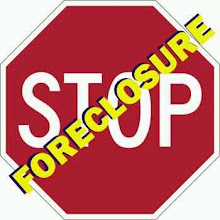A potential buyer for the home of Rosemary Williams could not complete the deal, but negotiations continue between the mortgage company and the Greater Metropolitan Housing Corp.
By ALLIE SHAH, Star Tribune
Last update: August 4, 2009 - 9:58 PM
Featured comment
I'm a "crazy far left liberal"....
and even I think this is ridiculous. Someone earlier mentioned responsibility, and that poster is correct. My wife and I also took out a small loan against our house to pay off some debt. I'm a social worker and she's a teacher, so it's not like we're rolling in money. What we did was make sure it was a FIXED interest rate loan and that we could afford the payments. I understand that this woman lost her job, but so have millions of other americans. It's time to give up the house and go find an affordable apartment. Sorry, that's the way the world works...
A last-minute deal to stop the eviction of a Minneapolis woman from her foreclosed home has fallen through, but on Tuesday, supporters of Rosemary Williams said discussions continue to find a way for her to stay put.
"There are some continuing negotiations right now. Whether they're fruitful or not, I don't know, " said Minneapolis City Council Member Elizabeth Glidden, who has been involved in the public fight to prevent the eviction.
Last month, Williams, 60, expressed relief and joy when she heard that a deal had been reached that would help her avoid immediate eviction and continue living in the home she and her mother built in south Minneapolis.
Under that tentative agreement -- reached hours after she was served eviction papers on July 24 -- the Greater Metropolitan Housing Corp. (GMHC) would buy the house for $90,000 as an intermediate buyer.
A third party would then purchase the home from GMHC, and Williams would continue to live there under a rental or other arrangement.
But the deal fell apart last week because the buyer, an undisclosed nonprofit agency, couldn't secure the necessary financing.
Jeannine Bruin, a spokeswoman for GMAC Mortgage, which owns the house, said in a written statement that company executives are still in discussions with GMHC and continue to evaluate every alternative.
Authorities, meanwhile, say they're holding off on an eviction.
"The court [eviction] order is still valid. At the same time, the mortgage company is still in talks, so we're not taking any action until we learn more," said Lisa Kiava, a spokeswoman for the Hennepin County Sheriff's Office.
Mick Kelly, an activist with the Minnesota Coalition for a People's Bailout, said supporters of Williams still plan to use civil disobedience tactics if authorities try to evict her.
Williams has become somewhat of a poster child for local and even national activists fighting eviction of poor people from their foreclosed homes. Her troubles began after she took out an adjustable-rate mortgage to get $12,000 to pay some bills.
Her monthly payment rose from $1,200 to $2,200 when the rate increased. She lost her job and stopped making payments. As a result, the house went into foreclosure and was sold at an auction last fall.
She was ordered to leave the house by March 30 but refused to leave. The new owner, GMAC Mortgage, then went to court to have her evicted. The Williams family has lived on Clinton Avenue for more than 50 years.
Allie Shah • 612-673-4488
http://www.startribune.com/local/52480592.html?elr=KArksUUUU
Thursday, August 6, 2009
Federal Mortgage Program Defaulting on a Pledge
A federal program that promised relief to millions of struggling homeowners has fallen far short of expectations.
By CHRIS SERRES, Star Tribune
Last update: August 5, 2009 - 5:25 AM
Bankruptcies climbing in Minnesota, U.S.
For the past year, Nichole Williams has been trying to persuade her lender to modify the mortgage on her Brooklyn Park home.
Three times, the 40-year-old legal assistant has been told she qualifies for an ambitious new federal program that would reduce her payment several hundred dollars a month. But after more than 100 telephone calls and dozens of e-mails to her lender, GMAC Mortgage, Williams is stuck in a mortgage that is technically in default.
"It seems like they just want to wear me down, so I'll just get up and leave," she said. "But this is my home. I did everything necessary to achieve it, and I'm determined to get what I qualified for."
Across the state and the nation, struggling homeowners like Williams are growing frustrated with a $75 billion federal program that was supposed to ease the housing crisis by preventing so-called "avoidable foreclosures" by cutting borrowers' monthly mortgage payments. But, according to a U.S. Treasury report released Tuesday, only a very small percentage of people who qualify for relief under the program are actually getting it. In many cases, borrowers have been strung along for months, only to be told in the end that they don't qualify. And when borrowers are denied, they often are not told why.
As of July, only 9 percent of eligible borrowers had seen their payments reduced under the program, but results varied wildly among the 38 banks that participated in the program. The Treasury report said Wells Fargo only modified 6 percent of eligible loans, while Bank of America modified 4 percent and J.P. Morgan modified 20 percent. All these banks receive incentive payments for each modification they complete, separate from the billions of dollars in federal bailout money they got to shore up their balance sheets.
Wells Fargo, which has the third-highest number of delinquent loans eligible for the program, said the numbers are misleading because the federal program was rolled out in stages, so the San Francisco-based bank has not had the opportunity to modify as many loans as it could have. The report also doesn't include the 220,000 loans Wells modified earlier this year that are not part of the Obama plan. "It's in our best interest to modify every customer that we can," said Mike Heid, co-president of Wells Fargo Home Mortgage.
Yet many borrowers and consumer advocates insist the wheel of mortgage modifications is grinding much too slowly. Last week, the Foreclosure Relief Law Project, a nonprofit law firm in St. Paul, filed a lawsuit on behalf of Williams and Johnson Sendolo, a Woodbury homeowner, who both claim they qualify for federal relief but were turned down by lenders without being given a reason. The lawsuit, which seeks to stop the lenders from foreclosing on more homes until better procedures are put in place, accuses the U.S. Treasury of violating borrowers' due process rights by denying them access to a federal program without proper notice or explanation.
"The smart thing to do for everyone is to press the pause button, to stop the foreclosure factory, and figure out what's wrong," said Mark Ireland, supervising attorney for the Foreclosure Relief Law Project.
Kaitlyn Helmbrecht, 22, a postage clerk from Maple Lake, also says she got a cool response from her lender when she asked if she could participate in the Obama program. She qualified, but when she contacted her lender, SunTrust Mortgage, the person on the phone was not even aware of the program.
"It was like they didn't know what I was talking about," she said.
No permanent relief
Williams said she fell behind on her mortgage payments in June 2007 after she was laid off from her job as a legal assistant and was without work for six months. Eventually, Williams found another job and could make some payments, but she was still about four months behind, she said. In July 2008, she sought a loan modification from GMAC, and on multiple occasions, she was given a "temporary" loan modification of two to three months, but not a permanent one that would reduce her interest rate or monthly payment for the life of the loan, she says.
Early this year, after hearing about the Obama program, Williams called her lender and specifically asked for a modification under the program. She was told she met all eligibility requirements: The loan was delinquent, it was for her primary residence and was made prior to Jan. 1, 2009. Yet GMAC continued to steer her toward its own programs.
Twice since she began asking for a loan modification, a representative of the lender has shown up at her door with foreclosure documents. The visits are "insulting and embarrassing," Williams says, noting she continues to make regular payments.
"It's not like I'm asking to stay in my house for free," she said. "I'm just asking them to do for me what's available to everyone."
A spokeswoman for GMAC Mortgage declined to discuss Williams' loan. However, in a written statement, she said, "GMAC Mortgage is firmly committed to helping borrowers who qualify under the [Obama program's] guidelines achieve affordable, sustainable mortgage payments."
Only 400,000 offers extended
The Treasury report found GMAC Mortgage has modified 20 percent of eligible loans under the program.
So far, banks have extended only 400,000 modification offers among 2.7 million eligible borrowers who are more than two months behind on payments. Some lenders had not changed a single mortgage. Nonetheless, the Obama administration said Tuesday it is still on track to meet its goal of helping up to 4 million borrowers by 2012.
Chris Serres • 612-673-4308
http://www.startribune.com/business/52478547.html?elr=KArksUUUU
By CHRIS SERRES, Star Tribune
Last update: August 5, 2009 - 5:25 AM
Bankruptcies climbing in Minnesota, U.S.
For the past year, Nichole Williams has been trying to persuade her lender to modify the mortgage on her Brooklyn Park home.
Three times, the 40-year-old legal assistant has been told she qualifies for an ambitious new federal program that would reduce her payment several hundred dollars a month. But after more than 100 telephone calls and dozens of e-mails to her lender, GMAC Mortgage, Williams is stuck in a mortgage that is technically in default.
"It seems like they just want to wear me down, so I'll just get up and leave," she said. "But this is my home. I did everything necessary to achieve it, and I'm determined to get what I qualified for."
Across the state and the nation, struggling homeowners like Williams are growing frustrated with a $75 billion federal program that was supposed to ease the housing crisis by preventing so-called "avoidable foreclosures" by cutting borrowers' monthly mortgage payments. But, according to a U.S. Treasury report released Tuesday, only a very small percentage of people who qualify for relief under the program are actually getting it. In many cases, borrowers have been strung along for months, only to be told in the end that they don't qualify. And when borrowers are denied, they often are not told why.
As of July, only 9 percent of eligible borrowers had seen their payments reduced under the program, but results varied wildly among the 38 banks that participated in the program. The Treasury report said Wells Fargo only modified 6 percent of eligible loans, while Bank of America modified 4 percent and J.P. Morgan modified 20 percent. All these banks receive incentive payments for each modification they complete, separate from the billions of dollars in federal bailout money they got to shore up their balance sheets.
Wells Fargo, which has the third-highest number of delinquent loans eligible for the program, said the numbers are misleading because the federal program was rolled out in stages, so the San Francisco-based bank has not had the opportunity to modify as many loans as it could have. The report also doesn't include the 220,000 loans Wells modified earlier this year that are not part of the Obama plan. "It's in our best interest to modify every customer that we can," said Mike Heid, co-president of Wells Fargo Home Mortgage.
Yet many borrowers and consumer advocates insist the wheel of mortgage modifications is grinding much too slowly. Last week, the Foreclosure Relief Law Project, a nonprofit law firm in St. Paul, filed a lawsuit on behalf of Williams and Johnson Sendolo, a Woodbury homeowner, who both claim they qualify for federal relief but were turned down by lenders without being given a reason. The lawsuit, which seeks to stop the lenders from foreclosing on more homes until better procedures are put in place, accuses the U.S. Treasury of violating borrowers' due process rights by denying them access to a federal program without proper notice or explanation.
"The smart thing to do for everyone is to press the pause button, to stop the foreclosure factory, and figure out what's wrong," said Mark Ireland, supervising attorney for the Foreclosure Relief Law Project.
Kaitlyn Helmbrecht, 22, a postage clerk from Maple Lake, also says she got a cool response from her lender when she asked if she could participate in the Obama program. She qualified, but when she contacted her lender, SunTrust Mortgage, the person on the phone was not even aware of the program.
"It was like they didn't know what I was talking about," she said.
No permanent relief
Williams said she fell behind on her mortgage payments in June 2007 after she was laid off from her job as a legal assistant and was without work for six months. Eventually, Williams found another job and could make some payments, but she was still about four months behind, she said. In July 2008, she sought a loan modification from GMAC, and on multiple occasions, she was given a "temporary" loan modification of two to three months, but not a permanent one that would reduce her interest rate or monthly payment for the life of the loan, she says.
Early this year, after hearing about the Obama program, Williams called her lender and specifically asked for a modification under the program. She was told she met all eligibility requirements: The loan was delinquent, it was for her primary residence and was made prior to Jan. 1, 2009. Yet GMAC continued to steer her toward its own programs.
Twice since she began asking for a loan modification, a representative of the lender has shown up at her door with foreclosure documents. The visits are "insulting and embarrassing," Williams says, noting she continues to make regular payments.
"It's not like I'm asking to stay in my house for free," she said. "I'm just asking them to do for me what's available to everyone."
A spokeswoman for GMAC Mortgage declined to discuss Williams' loan. However, in a written statement, she said, "GMAC Mortgage is firmly committed to helping borrowers who qualify under the [Obama program's] guidelines achieve affordable, sustainable mortgage payments."
Only 400,000 offers extended
The Treasury report found GMAC Mortgage has modified 20 percent of eligible loans under the program.
So far, banks have extended only 400,000 modification offers among 2.7 million eligible borrowers who are more than two months behind on payments. Some lenders had not changed a single mortgage. Nonetheless, the Obama administration said Tuesday it is still on track to meet its goal of helping up to 4 million borrowers by 2012.
Chris Serres • 612-673-4308
http://www.startribune.com/business/52478547.html?elr=KArksUUUU
Subscribe to:
Posts (Atom)











